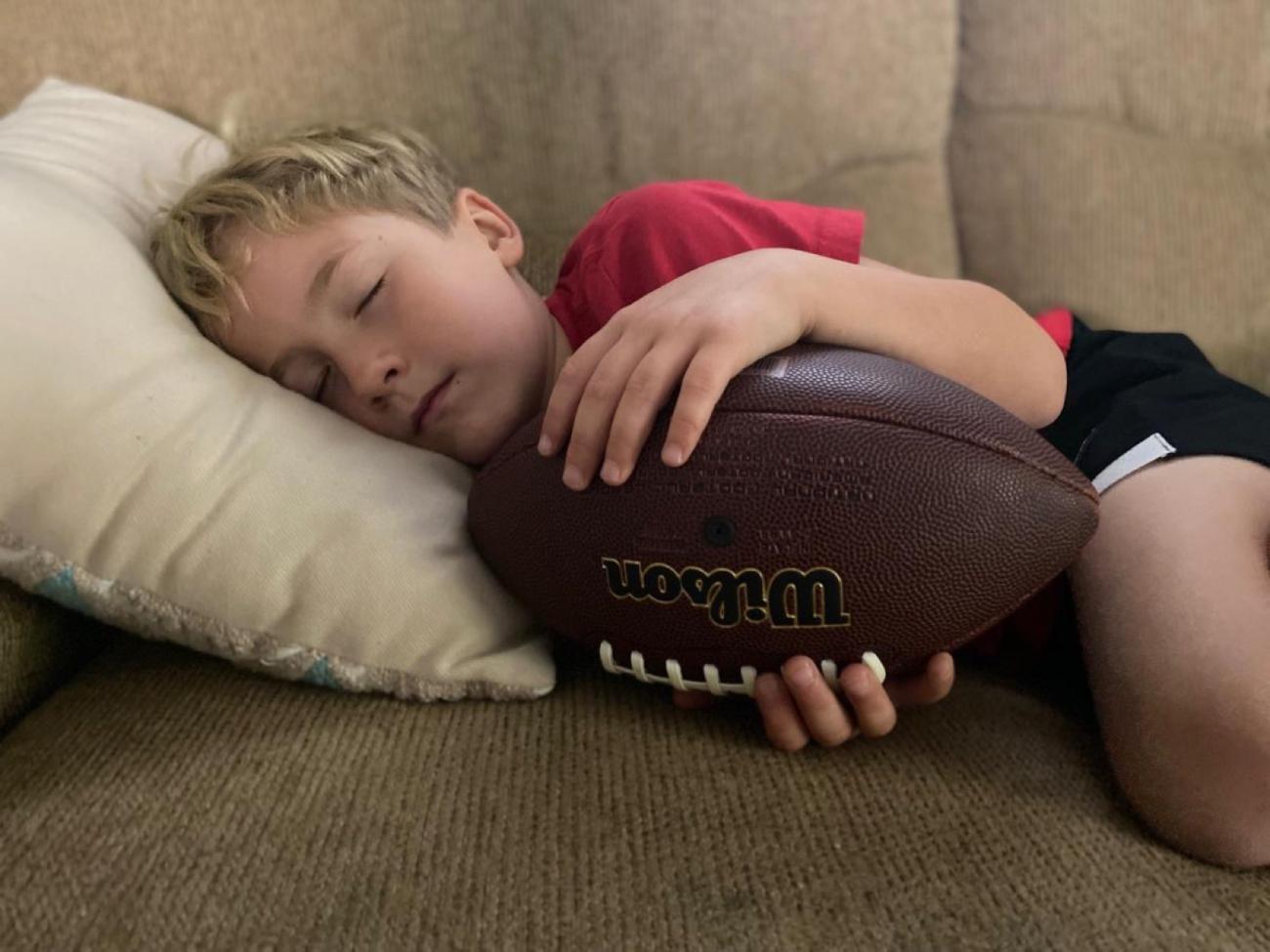
Sleep always sounds so nice, doesn’t it? But for many of us, there just never seem to be enough hours in the day to carve in additional sleep along with the tasks, responsibilities and commitments we have during the day. Between work, contributing to your household chores, having a social life, honoring appointments, and more, it seems like sleep often gets placed on the back burner.
Working with high school athletes, I have found that these adolescents also struggle to get the recommended amount of sleep. Many are waking up early for school, attending school, attending athletic practice(s) and then finding time to complete their homework assignments. It is not abnormal that I interact with kids rising before 6am and returning home after 9pm. And the cycle repeats the following day. Adolescents (12-18 year olds) are advised to get a minimum of 9 hours of sleep per night, however most seem to get closer to 7 or 8 hours of sleep.
Much like those other “commitments,” we need to encourage our young athletes (and frankly, ourselves) to honor the commitment of rest, in order to remain healthy and perform at our best. There are multiple benefits to getting the recommended amount of ZZZ’s.
Benefits of getting the recommended amount of sleep:
1. Promotes cardiovascular health. The heart is able to rest while tissues and cells can repair.
2. Reduction in injury rates. Not all injuries are avoidable, but with a regular sleep schedule, the body has its best chance to recover more quickly.
3. Immune system support. The body produces cytokines to regulate inflammation, which play a vital role in the body’s response to disease and infection.
4. Reaction time. A single ‘all-nighter’ can reduce reaction time by more than 300%, which is similar to the effects of having more than four alcoholic drinks. A study was recently completed that showed once an athlete was on a regulated sleep schedule (up to 10 hours) they demonstrated improvement in free throw accuracy and faster sprint times.
5. Academic performance. As we all know, without the academics our student athletes may be unable to share their athletic talent. Having a regular sleep schedule improves focus, memory, and decision making, which all positively impact grades.
You may be thinking that this is all great, but making it happen is another hurdle. Well . . .
Ways to achieve a regulated sleep schedule:
1. Brief napping. 30-minute naps have shown an increase in sprint performance and alertness. A word of caution, though. Naps should not be too close to bedtime (after 4pm) nor should they be too long (suggested nap time is 30-60 minutes).
2. Make your room a sleep haven. Creating a cool, quiet, dark space fosters the ability to fall asleep quicker and sleep more soundly.
3. Avoid caffeine, soda and chocolate late in the day. These elements inhibit our natural sleep patterns and may disrupt the ability to fall asleep when ready.
4. Avoid electronics (such as television, computer or cell phone) at least one hour before bed. The blue light emitted from the devices has shown negative effects on your circadian rhythm.
5. Implement sleepiness screening. A simple sleep diary may help you document your bedtime, wake up time, total sleep time, caffeine consumption, activities (duration, intensity, type), perceptions of sleep quality and daytime function. There are many wearable devices that support this type of monitoring, however simple pen and paper will do.
6. A pre-bed Diary or to-do list. We often find our minds running before bed. Take notes before your sleep, to avoid staying awake, feeling stressed and anxious or forgetting.
Bottom line, sleep is just as important – if not more so - to athletic performance as proper nutrition and hydration. Take time to prioritize your sleep, and experience the benefits in better energy, better mood and better performance. Then you won’t have to just take my word. You’ll feel it firsthand.
By Kim Epperson
MS, AT, ATC, Sparrow Eaton Hospital & Charlotte Public Schools Athletic Trainer




